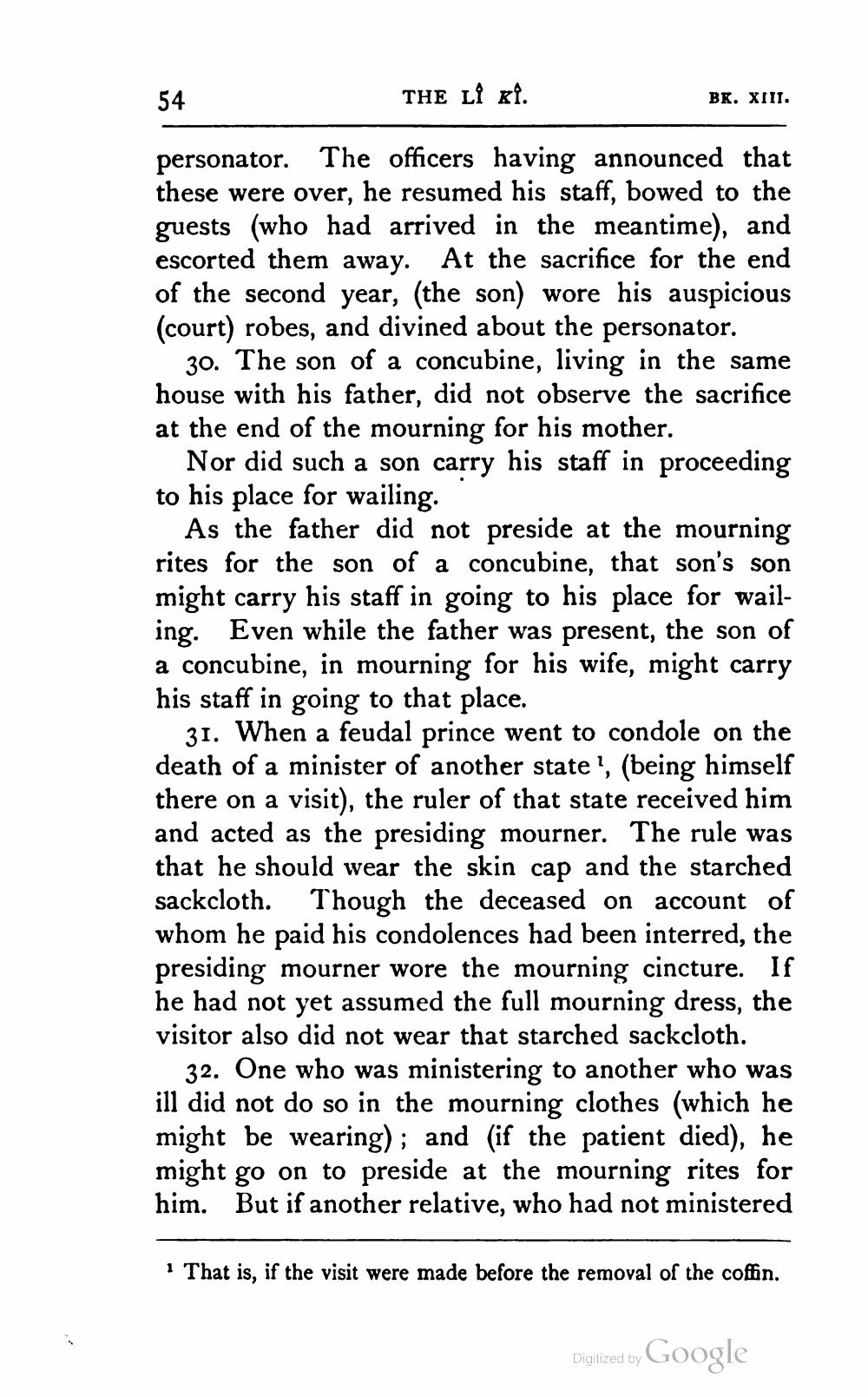________________
54
THE LÎ xi.
BK. XIII.
personator. The officers having announced that these were over, he resumed his staff, bowed to the guests (who had arrived in the meantime), and escorted them away. At the sacrifice for the end of the second year, (the son) wore his auspicious (court) robes, and divined about the personator.
30. The son of a concubine, living in the same house with his father, did not observe the sacrifice at the end of the mourning for his mother.
Nor did such a son carry his staff in proceeding to his place for wailing.
As the father did not preside at the mourning rites for the son of a concubine, that son's son might carry his staff in going to his place for wailing. Even while the father was present, the son of a concubine, in mourning for his wife, might carry his staff in going to that place.
31. When a feudal prince went to condole on the death of a minister of another state', (being himself there on a visit), the ruler of that state received him and acted as the presiding mourner. The rule was that he should wear the skin cap and the starched sackcloth. Though the deceased on account of whom he paid his condolences had been interred, the presiding mourner wore the mourning cincture. If he had not yet assumed the full mourning dress, the visitor also did not wear that starched sackcloth.
32. One who was ministering to another who was ill did not do so in the mourning clothes (which he might be wearing); and (if the patient died), he might go on to preside at the mourning rites for him. But if another relative, who had not ministered
That is, if the visit were made before the removal of the coffin.
Digitized by Google




